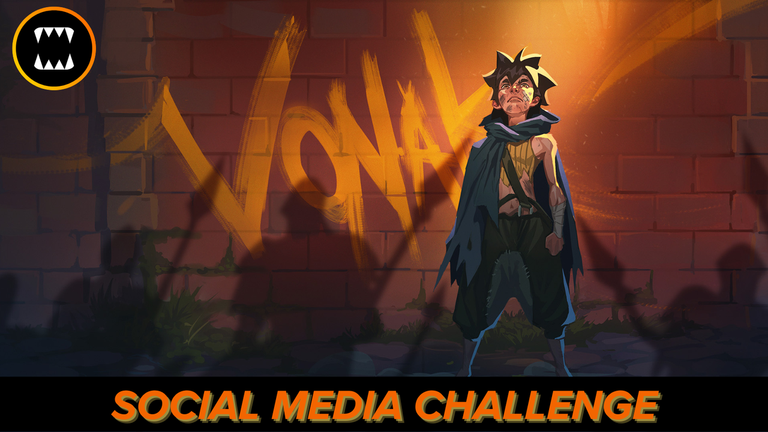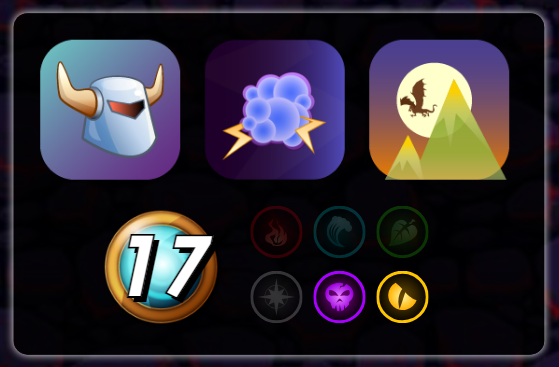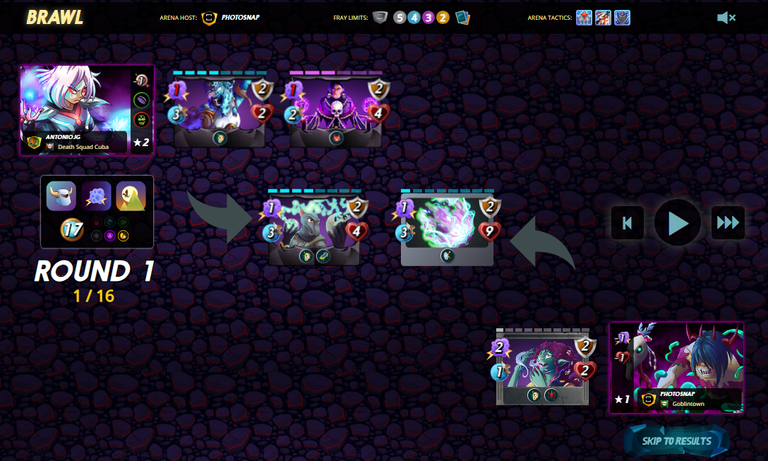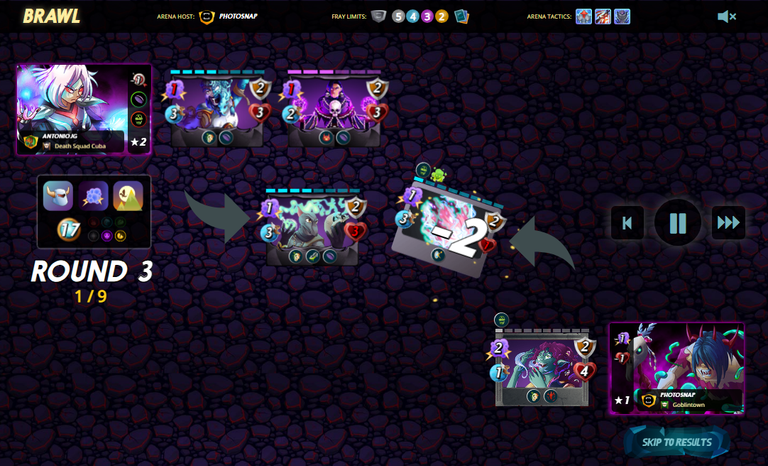
Español
¡Saludos comunidad! En el reto de esta semana quiero compartir con ustedes un análisis de mi experiencia utilizando una estrategia con el Splinter de Muerte. La cual considero una excelente opción para aquellas partidas con un límite de maná bajo y con el ruleset “Wands Out”. Es importante recordar que el tipo de ofensiva a utilizar en nuestras estrategias también dependerá del resto de reglas presentes en la batalla.
En esta oportunidad, les explicaré cómo afronté una batalla de Brawl de la liga de Plata en el formato Salvaje, enfocando mi análisis en explicar cómo utilicé al Splinter de Muerte, el invocador Mimosa Nightshade y a las unidades Venari Bonesmith, Life Sapper y Revealer para ser coherente con las reglas de batalla presentes y las habilidades que quería combinar con la finalidad de tomar ventaja en la partida con la estrategia planteada.
Ya que estos aspectos son un factor clave con un impacto considerable en el desempeño de nuestras estrategias.

Conjunto de reglas y elección

Hablemos sobre el conjunto de reglas presentes en la batalla, este es el punto de partida para iniciar el análisis que nos llevará a la elección más adecuada para afrontar la batalla.
Límite de maná igual a 17 puntos, esta cantidad nos permite elegir invocadores con un costo de maná entre 4 y 7 puntos. Sin embargo, es necesario tener una estrategia bien definida para aprovechar el maná restante en la elección de las unidades adecuadas.
Armored Up, es una regla que otorga a todas las unidades 2 puntos de armadura. Por otra parte, Wands Out, sólo permite utilizar unidades de tipo mágico. Mientras que, Lost Legendaries, no permite utilizar unidades de rareza legendaria.
Entonces, tomando en cuenta todos estos aspectos, decidí utilizar al Splinter de Muerte, ya que cuenta con unidades que poseen buenas estadísticas, entre ellas, un buen daño mágico. También cuenta con habilidades como: “Lifee Leech”, “Poison”, “Stun”, entre otras y con un invocador que otorga la habilidad “Void” al equipo y resta 1 punto de ataque ranged y aplica la habilidad “Affliction” al enemigo.

Equipo y estrategia

Hablemos sobre el equipo y la estrategia que conforma. Dadas las circunstancias, era evidente el uso del tipo de ataque mágico. Es por ello que decidí elegir al invocador Mimosa Nightshade, ya que otorga la habilidad “Void” al equipo y resta 1 punto de ataque ranged y aplica la habilidad “Affliction” al enemigo.
Venari Bonesmith fue el tanque en esta oportunidad, ya que cuenta con estadísticas aceptables en comparación al resto de las unidades en el equipo. También posee las habilidades “Poison” y “Life Leech”, las cuales le permiten tomar ventaja en la batalla.
Life Sapper ocupa esta posición con el propósito de acumular suficientes puntos de vida a través de la habilidad “Life Leech”, mientras contribuye con su ataque desde la segunda línea. Así, en el caso que el tanque sea abatido, él tomará el frente de la batalla.
Revealer es también una de las unidades clave en la partida, ya que otorga cierta ventaja una vez aplica su habilidad “Stun”. Permitiéndole al equipo tener más chances de ganar.
Es importante destacar que la habilidad “Void” otorgada por el invocador, es lo que hace la estrategia robusta.

Estrategia en acción

Como les mencioné anteriormente, elegir al invocador Mimosa Nightshade y a las unidades Venari Bonesmith, Life Sapper y Revealer, fue una buena opción. Sin embargo, también es importante incluir habilidades de soporte que le permitan a nuestro tanque y al resto del equipo, resistir lo suficiente.
Observen como para el turno 1 de la ronda 3, el equipo enemigo estaba casi abatido. Venari Bonesmith resistió lo suficiente en la primera posición hasta debilitar al poderoso tanque enemigo. La contribución de Life Sapper y Revealer fue clave para ello.
Si quieres ver la batalla completa, acá te dejo el enlace: CLIC PARA VER LA BATALLA

Conclusión
La estrategia planteada hizo un uso eficiente de la cantidad de maná disponible, cubriendo aspectos tales como: resistencia contra el daño enemigo, soporte del equipo, una buena ofensiva, y coherencia con el conjunto de reglas presente.
Una debilidad de esta estrategia es un equipo enemigo que cuente con resistencia al daño mágico e incluya habilidades como: “Void”, “Immunity”, “Tank Heal”, “Cleanse”, “Heal”, “Silence”, entre otras.
La diferencia entre las estrategias fue que el equipo enemigo no contaba con las habilidades de soporte suficientes, por lo que terminó siendo abatido.
Para el funcionamiento adecuado de nuestras estrategias, es importante considerar todos los aspectos involucrados, por lo que no sólo debemos enfocarnos en las estadísticas y habilidades a combinar. También debemos tener en cuenta la influencia de los conjuntos de reglas sobre la estrategia.
Este ha sido mi aporte al desafío semanal, ¡Espero haya sido de su agrado! ¡Saludos y hasta la próxima semana!

English
Greetings community! In this week's challenge I want to share with you an analysis of my experience using a strategy with the Death Splinter. Which I consider an excellent option for those games with a low mana limit and with the “Wands Out” ruleset. It is important to remember that the type of offensive to use in our strategies will also depend on the rest of the rules present in the battle.
In this opportunity, I will explain how I faced a Silver League Brawl battle in the Wild format, focusing my analysis in explaining how I used the Death Splinter, the summoner Mimosa Nightshade and the units Venari Bonesmith, Life Sapper and Revealer to be coherent with the battle rules present and the abilities I wanted to combine in order to take advantage in the game with the proposed strategy.
Since these aspects are a key factor with a considerable impact on the performance of our strategies.

Rulesets and choise

Let's talk about the set of rules present in the battle, this is the starting point to begin the analysis that will lead us to the most appropriate choice to face the battle.
Mana limit equal to 17 points, this amount allows us to choose summoners with a mana cost between 4 and 7 points. However, it is necessary to have a well-defined strategy to take advantage of the remaining mana in the choice of the appropriate units.
Armored Up, is a rule that grants all units 2 points of armor. On the other hand, Wands Out, only allows the use of magic type units. Lost Legendaries, on the other hand, does not allow the use of units of legendary rarity.
So, taking into account all these aspects, I decided to use the Death Splinter, since it has units with good stats, including good magic damage. It also has abilities such as: “Lifee Leech”, “Poison”, “Stun”, among others, and a summoner that grants the ability “Void” to the team and subtracts 1 point of ranged attack and applies the ability “Affliction” to the enemy.

Team and strategy

Let's talk about the team and its strategy. Given the circumstances, it was obvious to use the magic attack type. That's why I decided to choose the summoner Mimosa Nightshade, since it grants the “Void” ability to the team and subtracts 1 point of ranged attack and applies the “Affliction” ability to the enemy.
Venari Bonesmith was the tank in this opportunity, since he has acceptable stats compared to the rest of the units in the team. He also has the “Poison” and “Life Leech” abilities, which allow him to take advantage in battle.
Life Sapper occupies this position with the purpose of accumulating enough life points through the “Life Leech” skill, while contributing with his attack from the second line. Thus, in case the tank is shot down, he will take the front line of the battle.
Revealer is also one of the key units in the game, as it grants a certain advantage once it applies its “Stun” ability. Allowing the team to have more chances of winning.
It is important to note that the “Void” ability granted by the summoner is what makes the strategy robust.

Strategy in action

As I mentioned before, choosing the summoner Mimosa Nightshade and the units Venari Bonesmith, Life Sapper and Revealer was a good choice. However, it is also important to include support abilities that allow our tank and the rest of the team to resist enough.
Notice how by turn 1 of round 3, the enemy team was almost down. Venari Bonesmith resisted long enough in the first position to weaken the powerful enemy tank. The contribution of Life Sapper and Revealer was key to this.
If you want to see the complete battle, here you have the link: CLICK TO WATCH THE BATTLE

Conclusion
The strategy proposed made efficient use of the amount of mana available, covering aspects such as: resistance against enemy damage, team support, good offense, and coherence with the present rule set.
A weakness of this strategy is an enemy team that has resistance to magic damage and includes abilities such as: “Void”, “Immunity”, “Tank Heal”, “Cleanse”, “Heal”, “Silence”, among others.
The difference between the strategies was that the enemy team did not have enough support skills, so they ended up being defeated.
For the proper functioning of our strategies, it is important to consider all the aspects involved, so we should not only focus on the statistics and skills to be combined. We must also take into account the influence of the rule sets on the strategy.
This has been my contribution to the weekly challenge, I hope you enjoyed it, greetings and see you next week!

Te invito a seguirme en / I invite you to follow me on: Twitter
Las traducciones fueron realizadas con el traductor / Translations were done with the translator: DeepL
Todas las imágenes fueron tomadas de / and all images were taken from: Splinterlands

The rewards earned on this comment will go directly to the people( @antoniojg ) sharing the post on Reddit as long as they are registered with @poshtoken. Sign up at https://hiveposh.com. Otherwise, rewards go to the author of the blog post.
Thanks for sharing! - @zallin

Good Work, thanks for sharing!
¡Gracias! | Thanks! ✌️
¿ᴺᵉᶜᵉˢᶦᵗᵃˢ ᴴᴮᴰ? ᵀᵉ ˡᵒ ᵖʳᵉˢᵗᵃᵐᵒˢ ᶜᵒⁿ